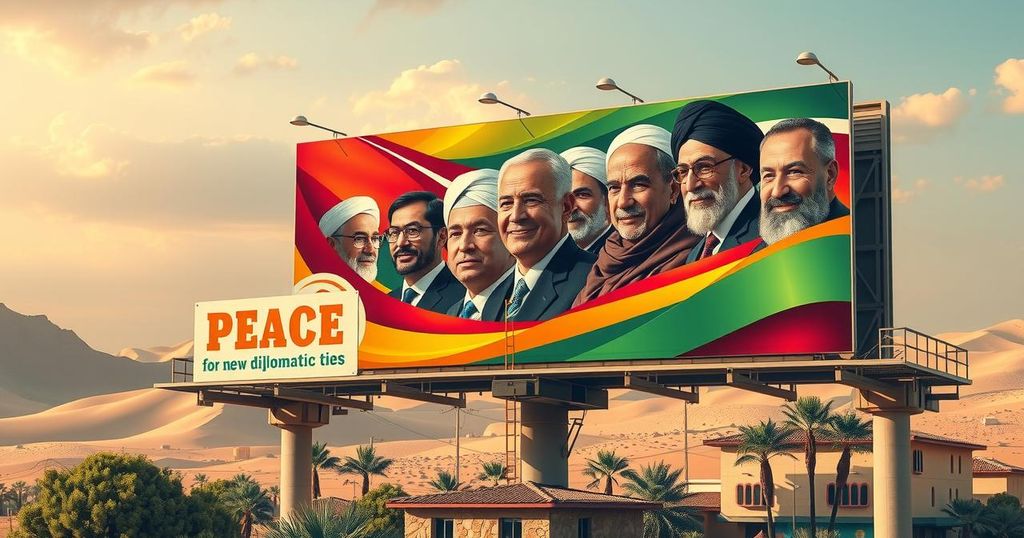Can the US Help Broker New Israeli Ties to Lebanon, Syria?

- Diplomatic activity in the Middle East is increasing after recent conflicts.
- Netanyahu states that recent victories create chances for more peace deals.
- The Abraham Accords, established in 2020, promote normalization with Arab countries.
Increased Diplomatic Activity Following Conflict
Rising Diplomatic Efforts in the Middle East While the situation remains tense following the 12-day conflict involving Iran, Israel, and the United States, there seems to be a noteworthy uptick in diplomatic activity throughout the Middle East. Israeli Prime Minister Benjamin Netanyahu claimed that the latest developments provide an opportunity to significantly expand peace agreements, referring to a new era of potential cooperation. In Israel, billboards proudly showcase depictions of Arab leaders from Lebanon and Syria, flanking an image of US President Donald Trump, boldly announcing the message that “The ‘Abraham Alliance: It’s Time for a New Middle East.” This campaign resonates with the historical Abraham Accords, which were initially established during 2020 to promote diplomatic normalization between Israel and various Arab states, including the UAE and Bahrain, among others.
To summarize, the resumption of diplomatic efforts in the Middle East signals a possible thaw in Israel’s long-standing disputes with Lebanon and Syria. However, significant geopolitical complexities and domestic opposition complicate this path to peace. The involvement of the Trump administration, while aiming for stability, raises questions about the effectiveness of its approach and the feasibility of achieving lasting agreements in the region.






